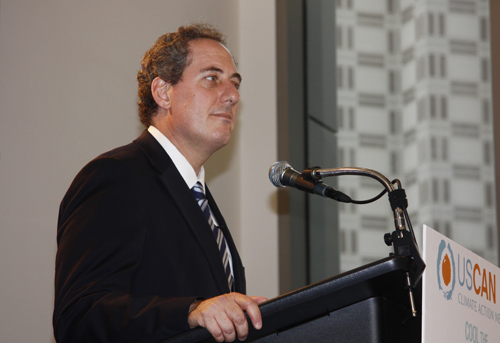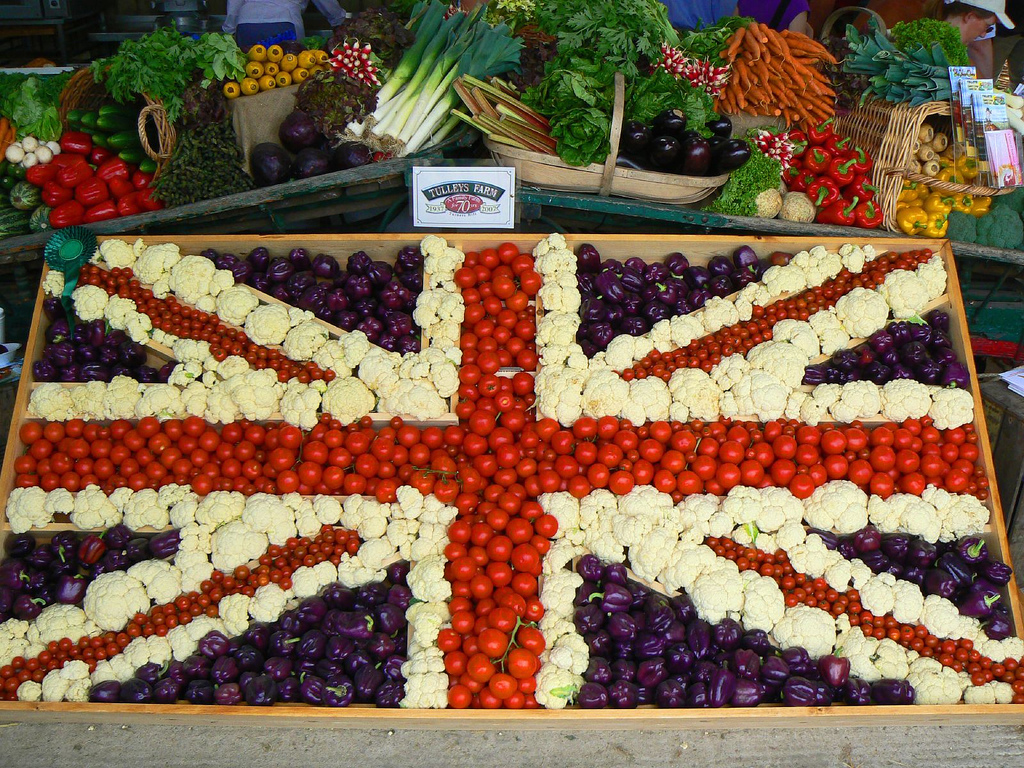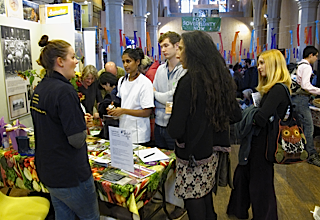
After centuries of operating a food procurement strategy instead of developing a food policy, the UK this week got a clear warning that it will not get preferential trading deals from the US if it ever left the EU. US trade representative Michael Froman told Reuters that the US is “…not particularly in the market for FTAs with individual countries. We’re building platforms … that other countries can join over time.”
The man leading the US TTIP trade negotiations team put the UK firmly in the EU basket, saying that: “…Britain has a greater voice at the trade table being part of the EU, being part of a larger economic entity.” As a third country, the UK’s commercial status with its largest trading partner, the EU, would revert to that of the BRIC countries – Brazil, India, Russia or China – noticeably left out of the triad of global trade negotiations of TTIP TPP and CETA.
Any fond hopes that the US would cut any slack for a post-EU UK should be consigned to the bin, Froman is warning.

So far, Eurosceptics in the UK have not yet woken up to the distinction between food procurement and food production, let alone what food comes from where. While the UK is no more than 60% self-sufficient, the current phase of the CAP is likely to be worth 40% of the total income from farming in the UK, as ARC2020 has already reported.
Brexit promoters, such as the UK Independence Party UKIP, have actively talked up the idea that post-industrial UK should be developing trading links with rising industrial economies such as Brazil or India. Quite what the UK would sell in these markets is far from clear, but agricultural products would be difficult to market, as would steel, so neither guns nor butter.
Meanwhile, the: “freedom to make stronger trade deals with other nations” tops the list of arguments made by the Better Off Out campaign. This group, with its headquarters in a boat moored in the Thames a short walk from the Houses of Parliament, claims the support of UKIP parliamentarians and Tory dissidents.
The Reuters story was picked up very rapidly by the Financial Times (requires subscription) and the DailyTelegraph, which wheeled out some earlier quotes from former European Commissioner Peter Mandelson to rubbish the brexit arguments.
On November 1, the Daily Telegraph focused on a 70-page shock report published by the Informa group’s Agra Europe title for industry insiders:
Land prices will crash. British agriculture will face a traumatic shock, and 90pc of the country’s farmers will be ruined.There will be a wave of debt foreclosures by banks, akin to the America Dustbowl and the Grapes of Wrath. A fresh seed of discord will be sown between England, Scotland, and Wales, imperilling the United Kingdom. This is what is likely to happen if Britain votes to leave the EU next year, according to a confidential 70-page report issued to clients by the specialist consultants Agra Europe
Along with the hyperbolic intro (above) the main point of the article was to note that “British farmers currently receive 60pc of their income from EU subsidies and environmental subsidies. They would lose most of this at a stroke unless the British government guaranteed compensating support of one kind or another, and so far it has clarified nothing.”
The Daily Telegraph’s reading of the Agra Europe publication assumes that the whole point of the UK leaving Europe is to save money on things like the CAP.
Euro-skeptics were quick to pounce on the objectivity or otherwise of what they called “shameless EU sock puppets” Agra Europe, pointing out their financial ties to Brussels, along with the money into the EU machine the UK pumps in each year. They also presumed that the UK would compensate – that’s save – its farmers with the money they save by not paying into EU coffers.
A quick glance at the voting patters over the years of UK MEPs and Ministers might lead one to fear for those dependent on CAP payments at present, save the very top 10% of recipients.
Often, the fact that the UK benefits from a rebate – compensation for the fact that it has a small agri-food sector – is not fully factored into the debate. According to the EU Commission, the ‘UK rebate’ – in place since 1984
is reimbursed by 66% of the difference between its contribution and what it receives back from the budget (worth about €4bn in 2010). The calculation is based on its Gross National income and Value Added Tax.
The cost of the UK rebate is divided among EU member countries in proportion to the share they contribute to the EU’s GNI. However, since 2002 this has been limited to 25% of its normal value for Germany, the Netherlands, Austria and Sweden, who considered their relative contributions to the budget to be too high. This cost is shared by the other 22 EU members.
Just how clued in UK politicians are to the realities of agri-food is questionable. A 2013 UK government document, published by the coalition, gives a good idea of the UK’s low level of understanding of food policymaking. The document is littered with half-baked notions, such as a failure to recognise fundamental differences between agriculture in the UK and New Zealand or the repetitious demands that Pillar I payments must be phased out.
The following passage demonstrates the ludicrous world view which generates this: “EU farmers are also protected by tariffs, which distort trade, raise food prices in the UK, and harm farmers in the developing world.”
More






Although I have always been pro European perhaps BREXIT is the best in the end just to get away from CETA and TTIP toxic trade deals! However, if Tories remain in power, they will do whatever they can to fast-track bilateral deals with Canada and the US. We’re damned if we stay and damned if we go. It’s the WHOLE system that has to change. We are being ruled by Big multinational Corporations who are causing untold damage by by-passing our laws that are there to protect our workers, our welfare system, the NHS and our environment, flora and fauna. All this will eventually affect every single citizen and their well being.
By the way, CETA & TTIP will be irreversible once signed. Corporate Europe or UK, here we come! I hope not!